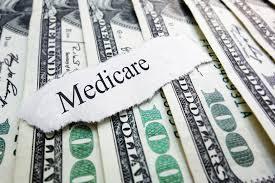The Generals of Medicare Fraud
The two words "medicare" and "fraud" may not mean much on their own, but putting them together to create the phrase "medicare fraud" can carry significant risks. Akin to healthcare fraud, this can be a difficult thing to figure out.
What Makes Up Medicare Fraud?

Medicare fraud can be done by anyone, intentionally or not. However, it is usually an intentional act and can be done by one person or by an organized group.
These acts can be as simple as misrepresenting an individual's statistics and information in order to be paid more or as complex as a crime group operating like a Medicare provider. The latter can cost thousands of dollars combined from their "customers", and often they will overcharge for every service they offer, and will even bill for appointments that were not kept.
Other acts that constitute medicare fraud include accepting remuneration to make referrals happen or to reward referrals for things reimbursed by federal level healthcare problems and finding or making referrals for things that cannot be referred. A crime group can also get in on the referral action, in addition to sending out bills that are much more complicated than they need to be.
Are There Any Laws I should Be Read Up On?
The short answer: there are four major laws that have been passed for medicare fraud.
While all of them are important, arguably the most important one is the False Claims Act, or FCA. This act imposes penalties on anyone who purposefully submits false claims to gain more money. Knowing in this case can be done in deliberate ignorance or simply without any regard at all to the claim. There is a criminal portion to this law, which can allow criminal penalties to be enforced against the guilty parties.
Under the FCA, fines range from $5,500 to $11,00 for each false claim. Guilty parties may also be required to pay up to three times the damages done.
The second rule that you should be well read up on is the Anti-Kickback Statute, or AKS. This essentially means that anyone paying, offering, rewarding, etc. for services that are reimbursed by a federal healthcare program can be brought up on charges. A common example for this is if a provider is charging $1,000 less than the market value for a certain service. Under this law, fines and imprisonment (or a combination of both) awaits the guilty parties.
A third law to make sure you know well is the Physician Self-Referral Law, or the Stark Law. In short, this one prohibits physicians and doctors from referring a client to any health service they or an immediate family member has a share in. For example, say Dr. Ryan has a share in Jumping Jogs, a physical therapy center (fictional, of course). He recommends five patients who could've gone to a much closer facility. He's in violation of the Stark Law. He could face repayment, fines, and even an exclusion from federal health care programs.
The fourth law to keep up on is the Criminal Health Care Fraud Statute. This is a general law that is meant to deter knowing and willful execution or attempting to execute a scheme to fraudulently obtain money or property that is owned by a healthcare program or to defraud a benefit program. An example could include nurses in a surgery ward falsifying papers to have more morphine delivered to the hospital than is needed. Punishments can include fines or imprisonment, or both when the situation demands it.
What Other Punishments Can Occur?

Though the four laws talked about above are worthy of healthcare fraud defense attorneys or hiring a medicare fraud attorney, there are two other things to be aware of when being investigated for medicare fraud.
The first is that there are exclusions when you are convicted of the fraud. This exclusion includes every federal health care program. Those affected are those who have been convicted of not only fraud, but also neglect or abuse of the patients; any felony conviction related to embezzlement, fiduciary responsibility, fraud, theft, and any other financial misconduct; and convictions related to unlawful manufacturing, prescriptions, dispensing, or even controlling of substances. Other grounds for exclusion are decided on a case by case basis, and reinstatement can occur if you actively seek it after a set period of time.
The second thing to be aware of is the Civil Monetary Penalties Law. This is a law that generally states that you were caught doing something that was wrong, but not a federal crime, and now you're going to face a lesser punishment than the criminal counterpart might. These are usually fines, and can be up to $50,000 for one violation. Yikes!
What Can I Do To Prevent Medicare Fraud?
The biggest thing you can do to help prevent or shut down a fraud is to report any suspicious activity. The OIG and CMS are the two biggest places you as a beneficiary can go to report frauds or complaints. Medicare managed care and prescription drug plan beneficiaries have their own number they can call if they have complaints.
You can call the CMS. However, if it's more convenient for you to email, the OIG is where you should go. You can even use snail mail if that's more your speed. For Part C and Part D participants, you have to call.
Providers can call, email, or even fax the OIG with their complaints, as can providers and beneficiaries of Medicaid. Providers of Medicare can also contact MAC in their local area, while Medicaid participants and providers can contact their equivalent: the Medicaid State Agency.

In all, by knowing the laws and the general costs for what you need most often, you can help fight medicare fraud. Reporting the suspicions, even if it turns out to be a simple error in computer coding that no one has caught yet, can help keep the fraud down. This saves you money in the long run, and also saves the government time and precious resources for Medicare and Medicaid recipients who truly need them. This, in effect, allows you to help a multitude of people by simply reporting your suspicions - whether or not they actually lead to a fraud discovery or not.
Knowing the laws will also help you know what you are entitled to if you end up the victim of fraud.

